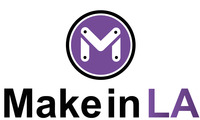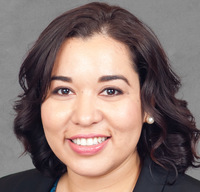Thursday, February 11, 2016
Noramay Cadena, Make In LA: Accelerating Hardware Startups

One of the big advantages of starting up a new company in the region in recent years has been a large number of startup accelerators, who have been driving a lot of the new startups in the area. One of those accelerators—focused exclusively on hardware—is Make In LA (www.makeinla.com). We caught up with co-founder and General Manager Noramay Cadena to learn more about the accelerator.
What exactly is a hardware accelerator?

Noramay Cadena: Hardware accelerators, as my mom might say, are a slightly nicer version of Shark Tank. She often watches the Shark Tank shows, and she always tells me what awful human beings she thinks the investors are. I explain to her that, like the contestants on the show, we work with very early startup entrepreneurs to build the next great product. We invest time and money into helping them develop their ideas, and help develop those companies and the entrepreneurs as leaders. We work with them over a short period of four months, to help them grow their companies and accelerate their business.
What's the difference between an incubator, Maker space, and other accelerators and what you do?
Noramay Cadena: People often compare us to incubators, but the biggest difference is that in an incubator, you are incubating technology. People come up with the technology and bring in a team to develop that business, who take a majority stake in that company. A Maker space is a place where people can work on projects but not businesses, and the majority of accelerators are focused more on software or software platforms, or a mixture of hardware and software. Make in LA is one hundred percent focused on hardware.
Do you make an investment in those startups?
Noramay Cadena: We do. We invest financially, with our time, hands-on-mentorship, and resources. Startups coming to us receive $75,000 at the start, in exchange for 7.5 percent equity. Throughout the program, they get to work out of our facility for free, and we provide hands on mentorship, from a network of 50 mentors who donate their time to work with the teams. At the end of the program, we reinvest with the companies who show the most potential. Overall, they have the opportunity to receive $150,000 in investment.
What's your background?
Noramay Cadena: I'm an engineer, a mechanical engineer. I spent over thirteen years in product development for much larger products, particularly satellites and airplanes. I spent 12 years at Boeing before diving into entrepreneurship.
What's the biggest benefit to being part a hardware accelerator?
Noramay Cadena: It's because of the community. We have a number of teams in the program, which really helps hardware companies with their business. It's about figuring out your market, building a product that resonates with customers. We help them work out a business model, and determine how to make money. In month three, we focus on manufacturing, cost of goods, logistics, and materials, and how to work with partners. In month four, it's about sustainability and fundraising, and getting the company to the next stage, figuring out who are the best strategic partners, and who the advisors they need to bring on board. The structure of the program really helps first time entrepreneurs stay on track, make decisions, and quickly avoid pitfalls and use their resources more efficiently. It's really hard to find someone willing to donate their time, their expertise, and get the legal, logistics, supply chain, marketing, and other advice on your own. We bring that community together.
What do you think is the hardest part of starting up a hardware company?
Noramay Cadena: The hardest part is being able to build something that really demonstrates the depth of your product, in order to get customer validation. We have a company in our next batch working on a haptic device, and people really have been struggling to describe it. One article, published about our companies, just called it an “unspecified device”. You have to be able to describe what a product is to enough of a level, so that you can get customer validation.
Finally, any advice you'd give to founders of a hardware company?
Noramay Cadena: Find a community support you, validate your product early, and be flexible. You need to find a community, find your product and market fit quickly, and be flexible on what you need to build.
Thanks!